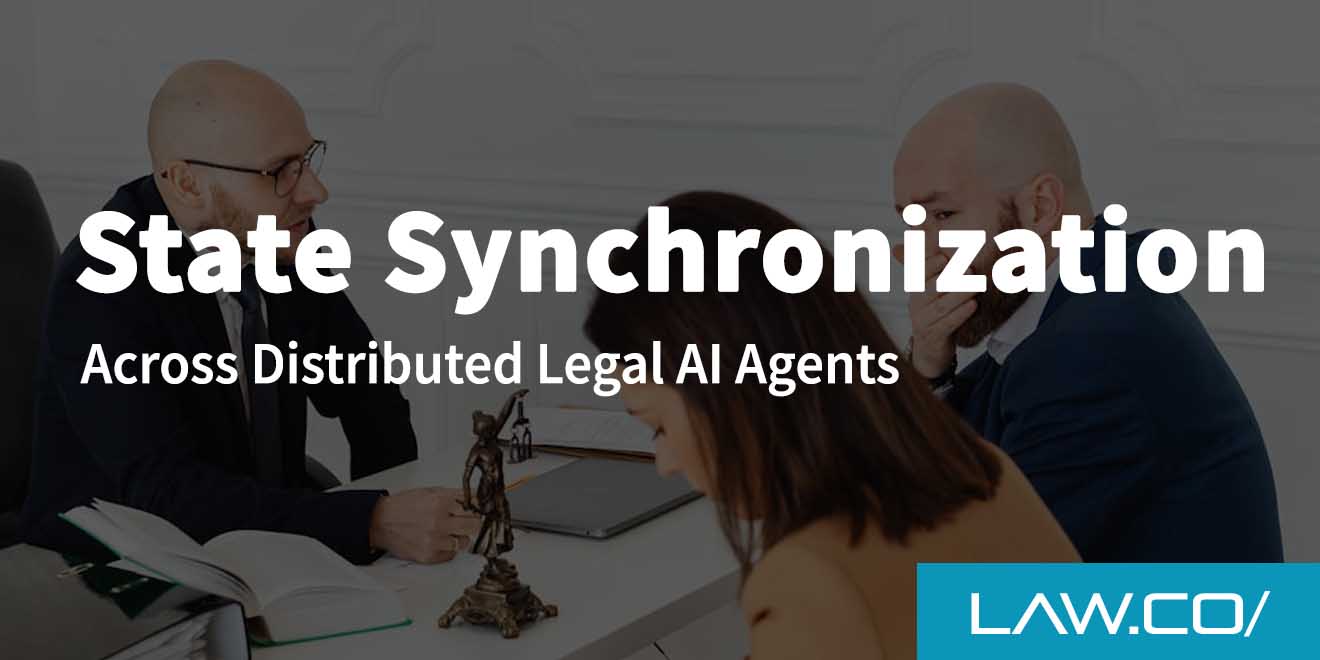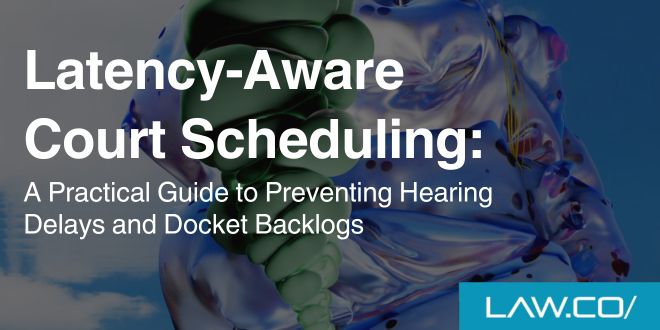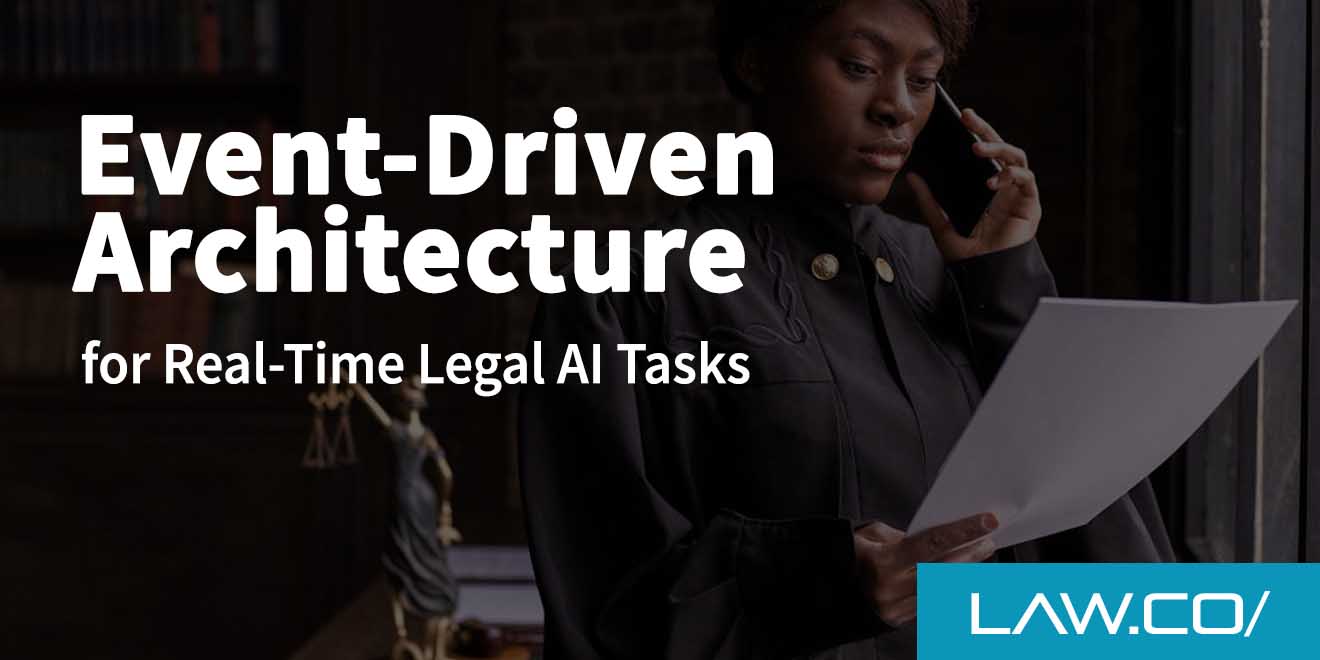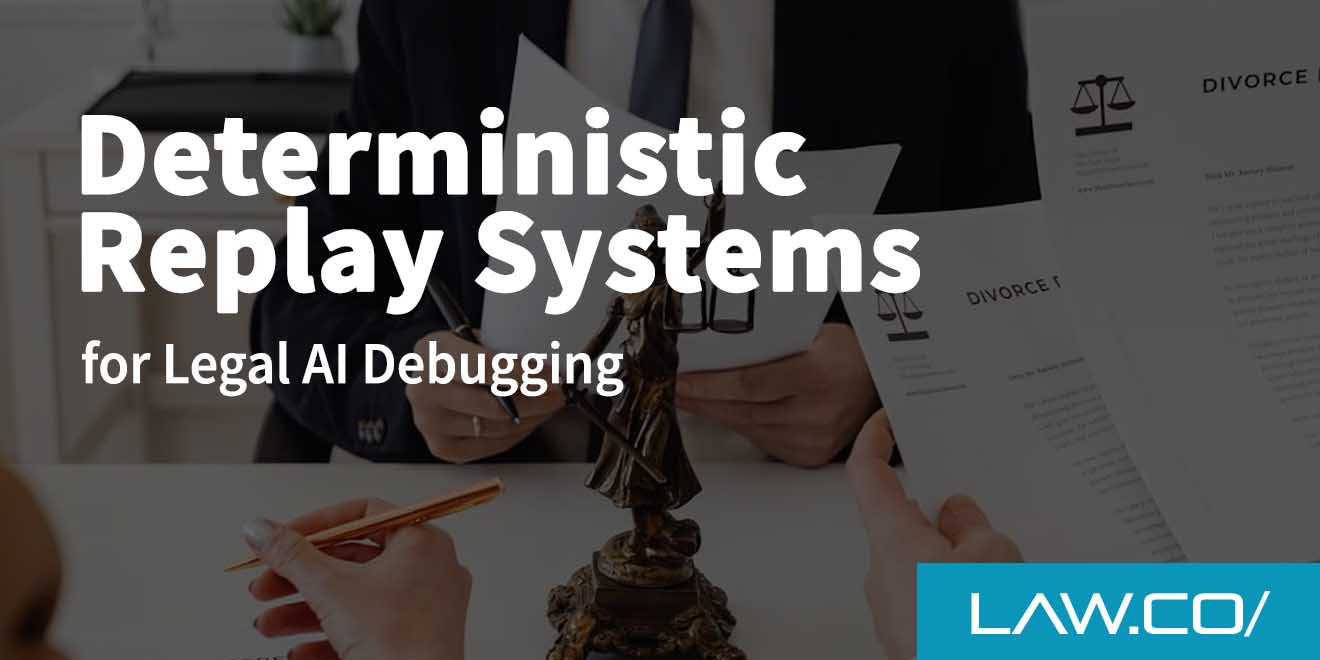

How Legal AI and AI Lawyers Are Simplifying the Divorce Process
Divorces can get messy.
Every year, there are roughly 690,000 divorces in the United States.
Most of the people involved in those divorces hope, against the odds, that their divorce process will be quick, easy, and cheap.
But the reality is, divorce is usually time-consuming, challenging, and expensive.
As a lawyer, you have the power to make things easier. You can address your responsibilities in the process with diligence and haste. You can anticipate potential issues and remedy them before they become pressing. You can even keep your rates in check to ensure that you don’t alienate or bankrupt your client base.
Even so, divorces are often complex to navigate – for lawyers and spouses alike.
However, a new tool has emerged for lawyers, designed to make a multitude of legal processes faster, more efficient, and more convenient: legal AI.
But what is legal AI and how can it simplify the divorce process?
The Costs and Complexities of Divorce Cases

There are several factors making divorce cases complex and expensive.
The median cost of a divorce in the United States is $7,000, with the average floating between $15,000 and $20,000. In some rare cases, the expenses associated with divorce climb into six figures. Even in a best-case scenario, divorces take several months, and in some cases, they can stretch on for years.
Where does all this money go? And why does it take this long?
First, it's important to understand that there are many issues that need to be resolved in a divorce, and the people participating in the divorce are unlikely to immediately agree on everything. In disputes involving custody of children, both parents have a vested interest in getting an outcome they want – and they are often diametrically opposed to each other. In disputes involving significant assets, division isn't as straightforward as a simple 50/50. Ownership of businesses, homes, and other indivisible property can complicate matters to the point where negotiations take months.
Throughout all this time, both parties in the divorce will be paying lawyers an hourly rate.
Second, divorce law can be confusing and it's constantly in flux. Lawyers are responsible for staying up-to-date with the latest changes to local laws, and even small changes in the legal system can lead to greatly increased complexity for lawyers handling the case.
Third, divorces tend to unfold over the course of several hearings, which must be scheduled in a court system that is probably overflowing with scheduled matters. Even in a case where a divorcing husband and wife agree immediately on everything, it can still take several months for the divorce to be finalized.
Fourth, there is a massive amount of paperwork that needs to be drafted and filed for the divorce. In some cases, lawyers can use existing templates as a starting point, but in many cases, these documents need to be drafted from scratch or heavily revised.
How Legal AI Can Help in Divorce Cases
So what can legal AI do to address these problems and make divorce cases more expedient and inexpensive?
First, it's important to understand the state of modern legal AI. Conversational, generative AI has reached a point where it can respond to conversationally written inquiries, search large databases, and even generate large swaths of text. AI is incredibly fast and efficient, often generating a response within a few seconds or a few minutes that might take a human hours or days of time to complete. It's also reasonably accurate, so long as it has access to a sufficiently exhaustive set of data to draw from.
Legal AI can help in divorce cases in several ways:
- Answering questions. Most people are familiar with AI as a glorified search engine; generative AI systems like ChatGPT are excellent at answering conversational questions, using whatever information to which they have access. In a divorce case, legal AI can help you answer some of your most pressing questions about the current state of divorce law, potential complications, and more. Clients and curious parties who don't have a legal education or background may also be able to use AI to help them understand the fundamentals in plain terms. If you're struggling to communicate with your client, you can even use AI to generate rephrased explanations to facilitate greater understanding.
- Providing updated information on laws and regulations. Laws are always changing, and it's hard for even the most competent, dedicated lawyers to keep up. With the help of a legal AI engine, you can quickly and easily learn about new laws and verify whether your intuitions are correct. Do note that legal AI isn't perfect, and it may or may not be tuned to draw information from the most recent legal changes, so while it can assist you, you can't entirely depend on it – at least, not yet.
- Creating divorce documents and filings. One of the greatest advantages of generative AI is its capacity to create documents from scratch. Instead of spending hours meticulously crafting a document from nothing, you'll be able to generate a rough draft in a matter of minutes. From there, it won't take you long to conduct a review, make some edits, and polish it to perfection. Given the sheer number of documents you'll be responsible for drafting during a typical divorce case, the incorporation of legal AI into your processes could save you dozens of hours.
- Reviewing and updating divorce documents and filings. Legal AI can also be used to review and update divorce documents and filings. After you've completed a document to your standards, you can submit it for AI review and potentially catch any typos or minor mistakes that you may have missed. It never hurts to have an extra set of eyes, especially when that extra set of eyes can review your documents with exceptional precision in a matter of seconds.
- Researching and analyzing cases. In some divorce cases, it might make sense to review prior cases and established law. Legal AI can help you do this, reviewing public records so you can get a better understanding of the legal context.
- Analyzing asset and debt divisions. Sometimes, it's hard to come up with a reasonable split for assets and debts, even if both parties generally agree on a high-level vision. Divisions must adhere to the law and should be acceptable to both parties, but the complexities and nuances of these divisions can be hard for even seasoned experts to wrap their minds around. Legal AI may be able to make recommendations on how to move forward in an acceptable way.
- Saving time and money. Ultimately, legal AI can handle many of the tedious and menial responsibilities that would drag a lawyer down in a typical divorce case. That means you'll save a lot of time, which you can use on more important, higher-level responsibilities. It also means your clients will save money in most cases.
From these benefits, you should be able to see how legal AI can help in divorce cases for both lawyers and clients. Lawyers get to do their work faster and more efficiently, with fewer hiccups and headaches. Clients get to make progress in their divorce cases with a more reasonable timeline, and there's a good chance they can save money by paying lawyers for fewer hours of work. And because clients are happier with the work done, they're more likely to give their lawyers good reviews and referrals.
Can AI Handle a Divorce Without Humans?
At this point, you may be wondering if legal AI is a bit too good at what it does.
In other words, could it possibly threaten your position as a divorce attorney?
Could a modern AI system handle a divorce without humans?
The short answer is no, and it's unlikely that legal AI will ever fully replace human lawyers.
There are several drawbacks and weaknesses of legal AI that we need to acknowledge, though they don't even begin to eclipse the benefits.
- Factual accuracy and reliability. You don’t have to search much to find examples of incidents in which generative AI engines were disastrously wrong. Even with a reliable source of information, it's possible for AI systems to misinterpret, misreport, or distort facts when presenting them to a user. It may totally neglect something important, or submit a piece of information that isn't true as if it was true. Because of this, it's always important to double check the information and recommendations you get from legal AI.
- Typos and simple mistakes. Though very uncommon, it is possible for AI to make typos and simple grammatical mistakes. In a legal setting, even the smallest typo or inaccurate word can have devastating consequences; for example, there’s the legendary case of the $10 million comma. Accordingly, it's unwise for anyone to rely entirely on AI for anything in the legal world.
- Experience and perspective. Sometimes, experience and perspective can matter more than simple interpretation of existing data. Legal AI, while it may have access to comprehensive public records, does not have any real legal experience. Its recommendations may be valuable, but human lawyers still have an edge in most matters.
- Nuances and complexities. AI isn't great at managing nuances and complexities. It's insanely good at processing data and coming to objective conclusions, but objective conclusions aren't always feasible when it comes to negotiating a divorce. An AI can't factor in a person's emotional attachment to a home the way a human lawyer can, for example.
- Confidential data. It's also important to recognize that lawyers must be extremely cautious with confidential data. While many legal AI systems are designed with privacy and confidentiality in mind, it's still an extra step of due diligence that lawyers need to take – and some lawyers are reticent to take the risk of supplying AI with confidential data. In the hands of a consumer, mismanagement of confidential information could cause devastating consequences.
Additionally, there are some strengths of human lawyers that legal AI systems can't yet approach.
- Emotional support. Divorces aren't just expensive and complicated. They're also emotionally difficult. In many scenarios, lawyers play a secondary role as emotional supporters; they want to help their clients emotionally recover as much as they want to help them financially succeed. While AI can replicate the tone associated with certain human emotions, it can't genuinely empathize, and it certainly can't provide a true human connection.
- Relationship building. Successful lawyers are excellent relationship builders. Good relationships lead to more pleasant experiences, more satisfied clients, and more referrals – regardless of the outcome of the case or the skill of the lawyer involved. Even if we imagine a world in which legal AI can do all the professional tasks that a lawyer can, many people would still turn to a human they can have a real relationship with.
- Recognition of interpersonal dynamics. In negotiations, recognition of interpersonal dynamics is crucial to succeed. Understanding the emotional attachments, personality traits, and histories of the people involved can give you an advantage in finding the best possible outcome for your client. You might be able to inform an AI about these factors, but it won't be able to process them or “understand” them the way a human being can. This requires much more abstract, conceptual, emotionally intelligent thinking.
- Hearing attendance. As of now, AI algorithms and robots cannot attend hearings. You'll need to have a human representative when presenting materials to the court.
- Direct negotiations and mediation. Remember, there are multiple people involved with the divorce. Most people won’t feel comfortable negotiating directly with an AI, even if we assume it’s a perfect negotiator. Similarly, legal AI will likely not be able to mediate in a way that’s satisfactory to all parties involved.
Legal AI in Divorces: The Bottom Line
The bottom line here is that legal AI can be incredibly useful for divorce cases, and valuable for both lawyers and clients. Even if you only use legal AI to create rough draft documents and answer a few questions, you could save hours of time and save your clients hundreds, if not thousands of dollars. Soon, legal AI may become a practical necessity for remaining competitive in the world of divorce law.
If you want to see how legal AI works for yourself, we’ve got a perfect opportunity for you.
Our legal AI tool is equipped with all the features you need for document review, legal research, contract generation, and more – and because it’s conversationally driven, you can start using it with no prior training or experience.
Everything starts with a free trial – so sign up today to see how it works!

%201.svg)










